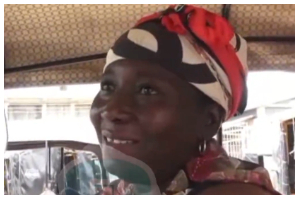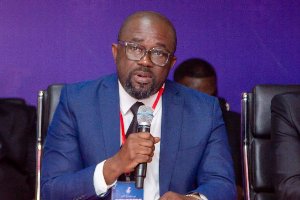Removal, Retribution and Reform must be at the heart of measures needed to restore credibility in the judiciary following Anas’s explosive audio and video recordings, which confirmed what most of us knew and what the annual surveys have consistently reported about judicial corruption. And these measures must be taken Rapidly!
Already 22 judges of the inferior court have been suspended, pending removal proceedings under Article 146 of the Constitution. This is in the right direction. However, to date their names have not been released. Their names must be released immediately.
The people have lost faith in the Judicial Council. As such, all aspects of these proceedings must be transparent to reduce the credibility gap. There is no reason why the 12 judges of the Superior Court have not been named and suspended. That should also happen immediately.
Retribution is an essential aspect of the credibility restoring process. All the judges and their conspirators must be prosecuted. However, few people have faith in the Attorney General’s office, itself labouring under the burden of corrupting the Judical Process to effectuate questionable judgment debts. What is needed is the appointment of a special prosecutor, with impeccable reputation, to investigate these high crimes and to represent the Republic for prosecuting the offending judges and their associates.
These trials must be aired on television and must be devoid of bankrupt evidential sophistry. For instance, some people are floating the puerile idea that the judges were entrapped, although Anas is not an agent of the government. Nor did he work on behalf of or at the direction of government or a government agency. But for the avoidance of doubt, I must state that a Republic funded and supervised sting operation to nab these judges would not have been unlawful and any evidence emanating from such a hypothetical sting operation is admissible.
In fact, sting operations may be the only viable way of detecting corruption in high places.
The judiciary is in need of serious Reforms. It is currently incapable of dispensing justice with its antiquated and opaque practices. The judiciary is inefficient, unaccountable and is doctrinally inept. There are no timelines for resolving disputes, allowing adjournments and delays to rob most claims of their value.
Seldom are judges held accountable with the most egregious display of judicial incompetence (e.g., Judge Francis Antwi in the Charles Antwi case) going unpunished. The process of confirming judicial appointees lacks seriousness.
Judicial opinions are not accessible; those that are available are not subject to serious academic scrutiny. These are the conditions under which corruption thrives.
Finally, it is regrettable that some people are trying to suppress the release of the videos. Ghanaians need to watch the videos to get a better understanding and appreciation of the cancer that has afflicted our judiciary.
After all, Ghanaians, including members of the Bar, are those paying these bribes to the judges. The videos must be required viewing for all law students in their first year class on professional responsibilities and be part of any continuing legal and judicial education.
Opinions of Monday, 14 September 2015
Columnist: Prof. Kwaku Asare















